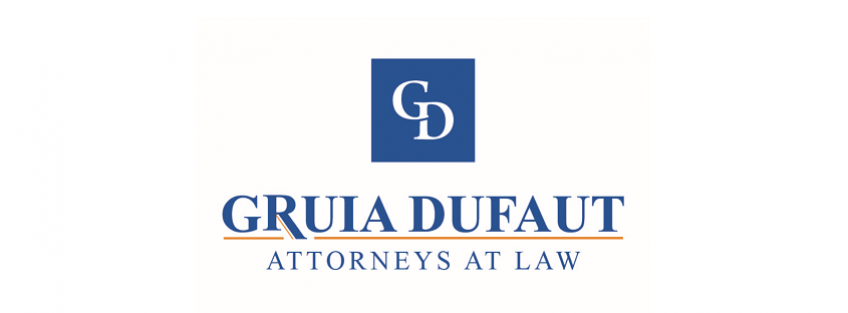Soil Quality Certificate: Increased Obligations of Landowners
Wed | 07.04.2021
Legal
Gruia Dufaut Law Office informs over the soil quality certificate: increased obligations of landowners.
General concerns related to soil protection are known at both European and national level. In Romania, most of the situations reported in recent years, particularly with regard to soil degradation and landslides, have been charged on legislative shortcomings and the lack of adequate involvement of the control authorities.
In this context, the Law no. 246/2020 on the use, preservation and protection of soils was adopted and entered into force on 1 January 2021. A law which, as established by legislators, aims not only to establish a unitary framework of measures and actions to prevent soil degradation, but also to diminish the areas of land withdrawn from the agricultural circuit by the owners, by exploiting of the areas approved by town planning.
But this law, whose application norms have not yet been adopted but are eagerly awaited to bring clarifications, beyond the protective measures established with regard to environmental objectives, entails a series of very important obligations for land owners.
Obligations of landowners
All land owners, whether they are natural persons, legal entities, associations or public authorities / institutions - have an obligation to ensure the preservation, improvement and protection of the soil.
Thus, the State guarantees by law to the owners, among others, the right to be consulted in respect to the development of policies and legislation relating to land, the issuance of regulatory acts in the field, the right to compensation for damages incurred, proven and assessed in accordance with the law.
Although insufficient and lacking clarity, the law provides some information regarding the obligations of land owners.
For example, land owners are required to:
- (in the case of agricultural and forestry operations) take measures to restore lands during the entire period of exploitation, at the end of the exploitation process and upon concession / alienation;
- (for land on which industrial activities are carried out) take restoration measures throughout the duration of the activity, after its cessation and upon alienation of the land
- (for land on which economic activities are carried out) to produce a financial guarantee for the duration of their use in order to restore the affected / degraded soil layer
In their turn, the statutory undertakers of land used for prospecting, exploration and exploitation of mineral resources activities are required to restore the land, in accordance with the specific legislation in force.
Finally, land owners shall preserve the right to annually certify the use of the land and to give their consent for its use, while users have the obligation to communicate to the owner their intention with respect to the use of the land.
Likewise, natural persons who own agricultural and forest land and buildings, notwithstanding their nature, as well as their users, whose activity is likely to cause modifications impairing the characteristics and functions of the soil, have, among other things, the obligation to:
- provide, upon request of the competent authorities of the central public administration, data and information available to them on land use and quality;
- respect the conditions of protection of the objectives of the cultural heritage imposed by their specific legislation.
- ensure and continuously update the land use registers held under a valid title, as well as the quality of the soil according to the legislation in force;
- continuously monitor the quality and characteristics of the soil of the land owned by virtue of any valid title, on the surface of which activities with significant impact on the soil have been carried out.
Please note that failure to comply with the provisions relating to the obligations of landowners constitutes a contravention and is subject to a fine which can range from Lei 2,000 to Lei 5,000 for individuals and from Lei 20,000 to Lei 50,000 for legal persons.
The certificate relating to the quality of the soil and its being mandatory upon land alienation
The law 246/2020 introduces as a novelty the obligation for land owners to request and obtain from the competent authorities the Certificate relating to the quality of the soil, according to a procedure which has not yet been approved by the central authorities.
Pursuant to definition under the law, Certificate relating to the quality of the soil means: the act certifying the quality of the soil, issued at the end of all works following which the layer of soil has been impaired or upon alienation of land affected by economic activities impacting the soil.
Applying for and obtaining the soil quality certificate are mandatory:
• when the owner of the land that has been affected by the following activities land changes / the land is alienated, for any valid reason: (i) existing or new agricultural, forestry and zoo-technics (ii) existing or new industrial and economic sectors having a significant impact on the soil (iii) military having a significant impact on the land.
• the finalization of all works having affected the soil layer.
The certificate is issued by the National Research and Development Institute for Soil Science, Agrochemistry and Environmental Protection (ICPA) on basis of the soil quality report established by the OSPA (The Office for soil studies and Agrochemistry) or by natural or legal persons certified to carry out soil quality studies.
The methodological standards for the implementation of this law have not been adopted to date, therefore, there is no procedure for obtaining these certificates.
This legal context makes it impossible to issue a soil quality certificate and to comply with the legal provisions relating to its compulsory nature during the alienation of land or the change of owner.
The existence of the legal obligation without creating the legal framework allowing to comply with raises issues in the conclusion of transactions on the real estate market, but also concerns with respect to the scope of applicability of the legal provisions.
At the same time, we are of the opinion that the methodological standards for implementing the law, awaiting promulgation, should clarify certain aspects, such as: the sanction applicable for failure to obtain the soil quality certificate during the alienation of land (contravention, nullity, etc.); who determines whether or not the land has been affected by activities with a significant impact on the soil, etc.
In conclusion, until the publication of the methodological norms for the implementation of the law, we are unable to fulfil certain legal obligations, with all the consequences arising therefrom. Normally, the obligation to produce a soil quality certificate should be suspended by means of a normative act until the emergence of the legal framework allowing the fulfilment of this obligation.
This article was provided by our Legal Partner, Gruia Dufaut Law Office.
2025
-
November (1)
-
October (1)
-
September (1)
-
July (1)
-
June (1)
-
April (1)
-
February (2)
-
January (1)
2024
-
November (1)
-
October (1)
-
July (1)
-
May (1)
-
March (1)
-
February (1)
-
January (1)
2023
-
November (1)
-
September (2)
-
August (2)
-
June (1)
-
May (1)
-
April (2)
-
March (1)
-
February (2)
-
January (2)
2022
-
December (3)
-
November (4)
-
October (3)
-
September (4)
-
August (3)
-
July (6)
-
June (4)
-
May (4)
-
April (8)
- Marketing News by diARK - April 2022
- Finance News by Mazars Romania - April 2022
- Experience the Perfect Chauffeur Transfer with David Intercar
- Mobility News by Business Lease - April 2022
- NRCC MEMBER IN SPOTLIGHT, WOLTERS KLUWER
- Crowe Romania and DeclaratiaUnica.ro engage in the automation of the single return form and the offering of personalized consultancy
- Cryptocurrency News by Bitcoin Romania, April 2022
- Legal News by BBW LAW - April 2022
-
March (6)
-
February (4)
-
January (5)
2021
-
December (3)
-
November (4)
-
October (2)
-
September (2)
-
August (1)
-
July (5)
-
June (3)
-
May (5)
-
April (4)
-
March (7)
- Cryptocurrency News by Bitcoin Romania, April 2021
- HR News by CNA International Executive Search Romania, March
- Real Estate News by CTP Invest, March 2021
- Sale-Purchase of Agricultural Land Located Outside Build-Up Areas
- MEET THE NRCC BOARD CANDIDATES 2021
- Fleet Management – Complete Makeover or Small Adjustments?
- Cryptocurrency News by Bitcoin Romania, March 2021
-
February (5)
-
January (6)
2020
-
December (2)
-
October (2)
-
September (3)
-
August (2)
-
July (6)
- NRCC Member in Spotlight Interview - Autonom
- Insolvency Proceedings: New Rules
- Member in Spotlight, UniCredit Bank
- Financing opportunities overview for large enterprises, SMEs and other organizations
- Companies: Simplification of Formalities
- Call for Leaders | What is your readiness score to benefit from the EU SURE initiative?
-
June (5)
-
May (8)
- The State of Alert. New rules for the collective proceedings
- The Retail Industry
- EU grants up to 6 Mil Euro for SME-s investment projects
- Member in spotlight, Heisterkamp Transportation Solutions
- State of Alert...What Is New
- The forced transformation of the automotive industry – Mazars analysis
- State of Alert in Romania
- Reducing the Impact of the Pandemic
-
April (6)
-
March (2)
2019
-
November (2)
-
July (1)
-
June (1)
-
March (2)
-
January (1)
2018
-
October (2)
-
September (1)
-
August (1)
-
July (3)
-
June (2)
-
May (1)
-
April (1)
-
March (3)
-
February (13)
- NRCC Elections 2018 - Elena Badea
- NRCC Elections 2018 - Loreda Dragomir
- NRCC Elections 2018 - Simina Fodor
- NRCC Elections 2018 - Manuel Herraiz Orti
- NRCC Elections 2018 - Tom Leene
- NRCC Elections 2018 - Mircea Moga
- NRCC Elections 2018 - Ronald Oort
- NRCC Elections 2018 - Razvan Pascu
- NRCC Elections 2018 - Alexandru Popescu
- NRCC Elections 2018 - Mihaela Tudor
- NRCC Elections 2018 - Loredana Van de Waart
- NRCC Elections 2018 - Edwin Warmerdam
- NRCC Elections 2018 - Philip Aarsman
2017
-
November (1)
-
September (1)
-
August (2)
-
May (1)
-
April (2)
-
March (1)
2016
-
November (1)
-
September (8)
-
June (1)
-
February (2)








